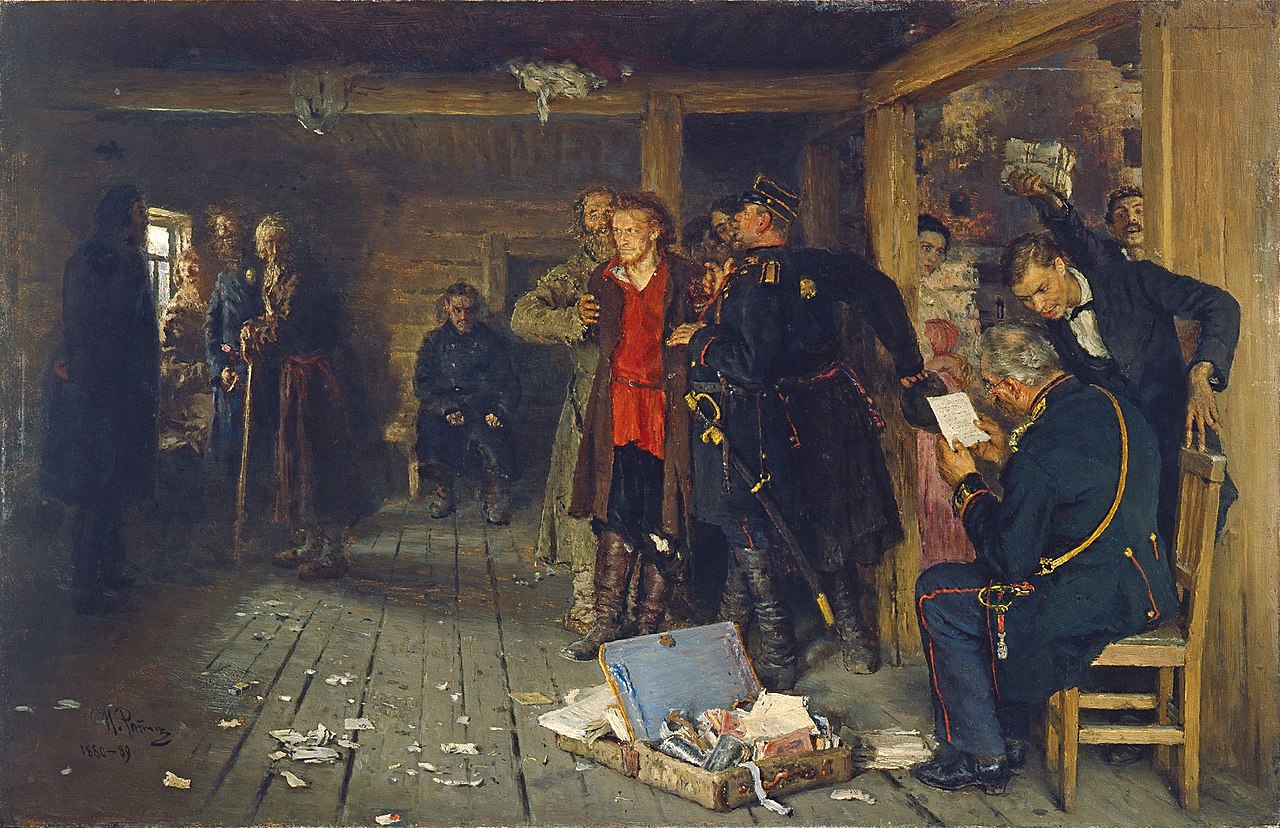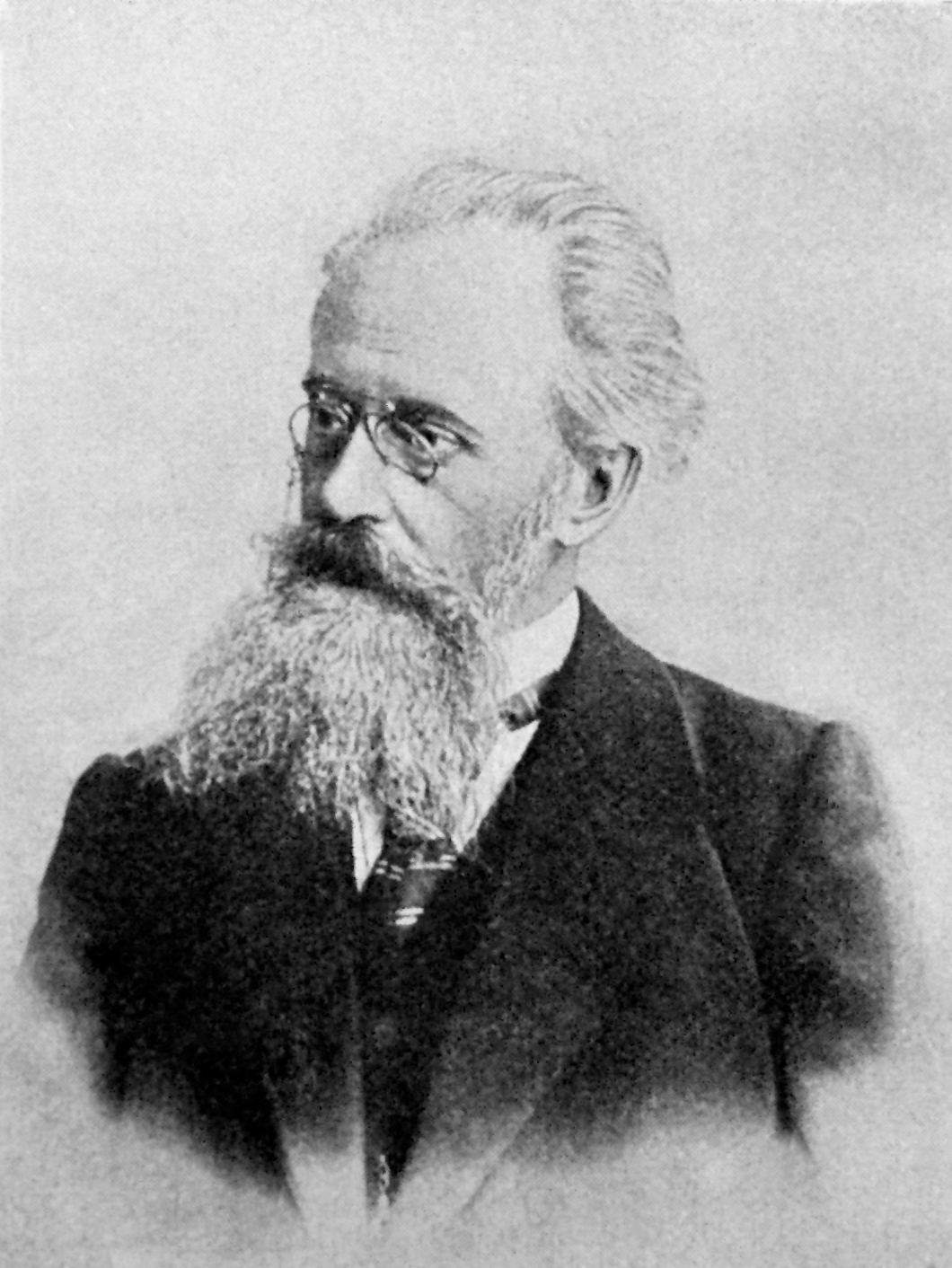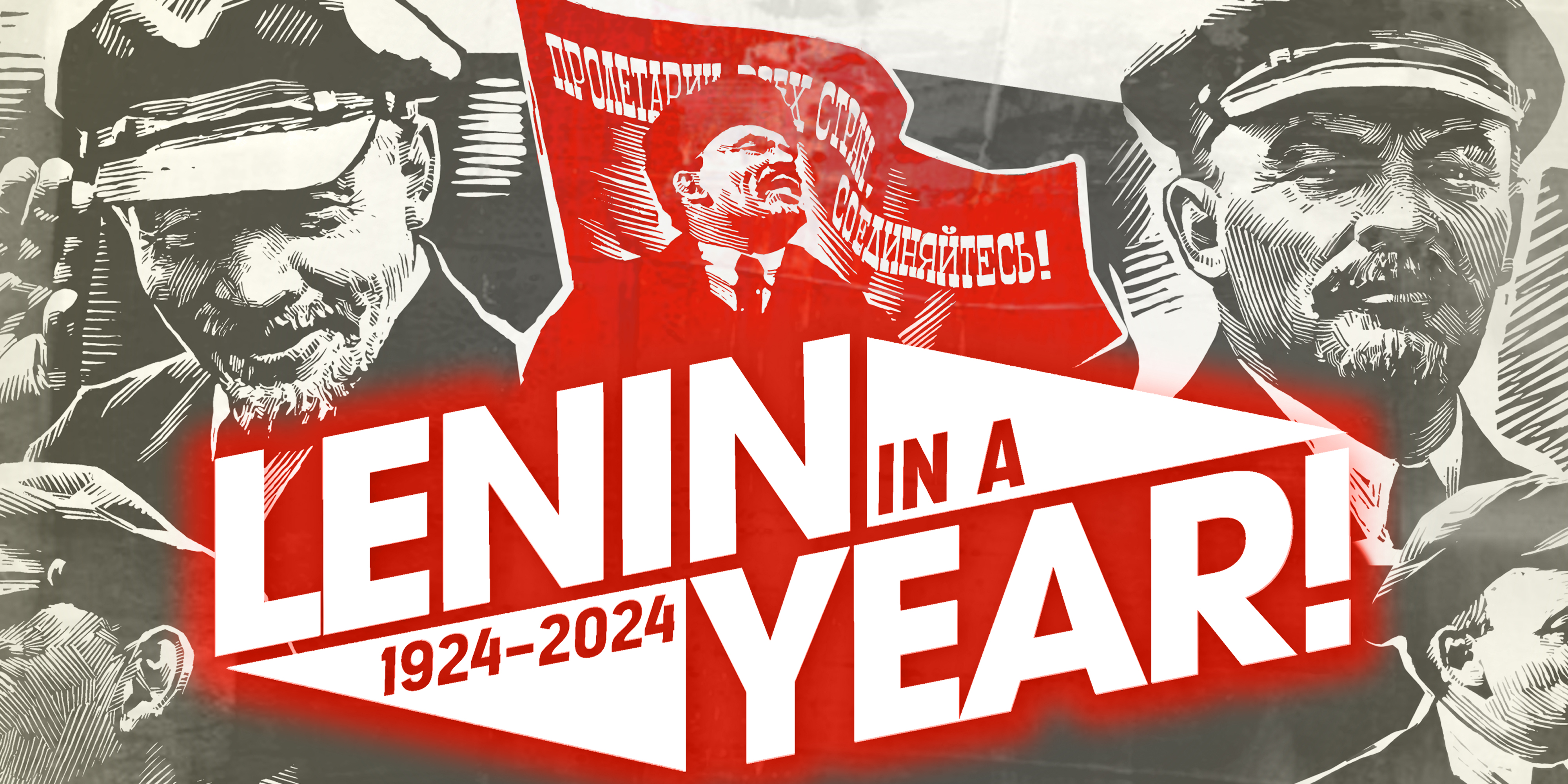In this, the centenary year of Lenin’s death, it is time for revolutionaries to reclaim the real Lenin: as a revolutionary fighter, the founder of Bolshevism and the Communist International, and as one of history’s greatest Marxist theoreticians. To this end, we are proud to launch a new series, Lenin in a Year, to bring out the gems – some well-known, others less so – of Lenin’s prodigious theoretical work. The series aims to convey their enduring value to revolutionaries today, and illustrate how they were intimately linked to the polemics and political struggles that defined Lenin’s life, and through which Bolshevism was forged.
Each week, we will introduce readers to a new text. We start with one of Lenin’s earliest major works, What the ‘Friends of the People’ are and how they fight Social-Democrats. It was written in 1894, amidst a period of stormy strikes of workers in Russian cities, at which time Lenin was playing a leading role in the Marxist circle then growing in St Petersburg.
To really get to grips with the material, we recommend all comrades read this alongside the new biography of Lenin by Rob Sewell and Alan Woods: In Defence of Lenin. This new publication from Wellred Books isn’t simply a biography: it is a vital textbook on how to build a revolutionary party, and vital reading for every serious revolutionary communist today.
Lenin’s ideas and the legacy of Bolshevism are a foundation stone of our organisation, which is taking the important step of launching the Revolutionary Communist International (RCI) in June. We call on all communists who are inspired by Lenin’s life and work to register for the founding conference of the RCI!
What the ‘Friends of the People’ are and how they fight Social-Democrats
 By this point, Narodnism was no longer the bold, heroic movement of individual terrorists striving for the overthrow of the Tsarist state / Image: public domain
By this point, Narodnism was no longer the bold, heroic movement of individual terrorists striving for the overthrow of the Tsarist state / Image: public domain
Lenin’s first book, What the ‘Friends of the People’ Are and How They Fight the Social-Democrats, was published in 1894, when he was just 24 years old. For this reason alone, it is of historic significance. Yet this is far from an ‘immature’ work. It already demonstrates a deep understanding of the Marxist method; the theories of historical materialism and Marxist economics; and the tasks faced by Russian revolutionaries.
In the 1880s, Plekhanov established Marxism in Russia by launching polemical writings against the populists (Narodniks). The chief question of these polemics was the course of development that lay before Russia, and the tasks this imposed on revolutionaries. Plekhanov’s work in demonstrating that Russia did not (as the Narodniks believed) have some unique path to socialism, nor was exempt from the historical process and the laws of development, helped win Lenin to the Marxist movement.
This text, then, represents the passing of the baton in this ideological struggle, from Russian Marxism’s founder to what was to become its greatest figure. For it too is a polemic with Narodnism, specifically the liberal Narodnik Mikhailovsky, who had been waging a relentless campaign against Marxism in his movement’s theoretical journal, Russkoye Bogatstvo (Russian Wealth).
At the time, it was very hard for young revolutionaries to get hold of any theoretical material with which to educate themselves. Mikhailovsky’s campaign – well funded and spread far and wide, thanks to his liberal, middle-class supporters – therefore threatened to do real damage, as there was so little to counter or refute his ‘arguments’.
For this reason, as the Bolshevik Semashko states, “when Comrade Lenin’s brochure appeared… containing illuminating statistical material, it was for us a veritable evangel. We reprinted it on the hectograph, in spite of its size, through whole nights, hiding it in places most inaccessible to the police in case of search, and learning it almost by heart.”
Lenin’s wife Krupskaya remembered, “how it thrilled us all. The aims of the struggle were set forth in the pamphlet with admirable clarity”, while Martov described how “the pamphlet showed both literary gift and the ripened political judgement of a man woven of a fibre from which party leaders are made.”
By this point, Narodnism was no longer the bold, heroic movement of individual terrorists striving for the overthrow of the Tsarist state. As Lenin writes, “When [Narodnism] first arose, in its original form, it was a fairly well-knit theory: starting from the view of a specific way of life of the people, it believed in the communist instincts of the ‘communal’ peasant and for that reason regarded the peasantry as a natural fighter for socialism.”
In other words, the Narodniks had an ahistorical view of Russian society. For them, Russia was an exception. Large-scale industry and big cities with an urban proletariat were not the universal and unavoidable features of capitalism, but simply Western European idiosyncrasies. Russia would find its own way to socialism and emancipation, which was through the traditional peasant commune.
As Lenin explains, this “belief in the communist instincts of the muzhik [peasant] naturally demanded of the socialists that they set politics aside and ‘go among the people.’ A host of extremely energetic and talented persons set about fulfilling this programme, but practice convinced them of the naïveté of the idea of the muzhik’s instincts being communist” (our emphasis).
Narodnism clashed with reality, entering a blind alley and a crisis. Even their greatest ‘success’, the assassination of Tsar Alexander II in 1881, did not bring down the Tsarist regime, but did unleash a wave of brutal repression that effectively decapitated Narodnism by executing, imprisoning and exiling its most heroic elements. By the late 19th Century, many Narodniks, having failed to win the peasants to socialism by ‘going to the people’ and having failed to dent Tsarism with a campaign of individual terror, essentially became liberals.
Thus, Lenin’s polemic is really with a liberal. And that is what makes it so relevant to us today.
The petty-bourgeois ‘theorists’ who propagate liberalism today look upon the contradictions and injustices of capitalism as just so many accidental features: the result of mistaken ideas, prejudices and unfortunate practices that need simply to be corrected or ironed out, just as the Narodniks saw capitalist development itself as entirely unnecessary in 1890s Russia.
In attacking the historical materialism of Marxism, Mikhailovsky thinks a sort of historical eclecticism is superior. Why be tied down by historical laws, by the constraints of a social system, when one could just pick and choose the best bits from history, and integrate them into our society?
“[Mikhailovsky says] ‘we must take what is good from wherever we can; and whether it be our own or foreign is not a matter of principle, but of practical convenience. Surely, this is so simple, clear and understandable that there is nothing even to discuss.’ Indeed, how simple it is! ‘Take’ what is good from everywhere—and the trick is done! From the medieval forms ‘take’ the labourers ownership of the means of production, and from the new (i.e., capitalist) forms ‘take’ liberty, equality, enlightenment and culture. And there is nothing to discuss! Here the whole subjective method in sociology is as clear as daylight…
“The whole of their philosophy amounts to whining that struggle and exploitation exist but that they ‘might’ not exist… if there were no exploiters. Really, what did the author mean by this meaningless phrase?”
Lenin skewers this idealist view that sees history from the perspective of how it should develop, as conceived in the mind of a would-be reformer, as if history can merely be moulded at will. Against this, Lenin counterposes the scientific, materialist method of Marxism, which takes its point of departure how history has and must develop and, on that basis, how we as revolutionaries can intervene in this process:
“What Marx and Engels called the dialectical method—as against the metaphysical—is nothing else than the scientific method in sociology, which consists in regarding society as a living organism in a state of constant development (and not as something mechanically concatenated and therefore permitting all sorts of arbitrary combinations of separate social elements)” (our emphasis).
Milkhailovsky and his ilk caricatured Marxism as rigid, apparently reducing everything to fixed economic laws from which there can be no deviation, even for the individual, who can have no impact on these allegedly fatalistic forces. Lenin makes the point that Marx’s Capital does not pretend to lay out eternal economic laws which are constant in all phases of history, rather it was a study of the specific laws of the capitalist economy, and how these laws interact with society in general, including the individual, since as Lenin points out “all history is made up of the actions of individuals, who are undoubtedly active figures.”
 Milkhailovsky and his ilk caricatured Marxism as rigid / Image: public domain
Milkhailovsky and his ilk caricatured Marxism as rigid / Image: public domain
Lenin explains that prior to Marx’s historical materialism, sociologists and economists looked at society as if all human societies were the same, just waiting for some genius to discover the ‘right’ ideas to improve this self-same society:
“Just as Darwin put an end to the view of animal and plant species being unconnected, fortuitous, ‘created by God’ and immutable, and was the first to put biology on an absolutely scientific basis by establishing the mutability and the succession of species, so Marx put an end to the view of society being a mechanical aggregation of individuals which allows of all sorts of modification at the will of the authorities”.
Liberals and trendy intellectuals of our day constantly patronise Marxists for subscribing to such an ‘old’, ‘out of date’ set of ideas, for being therefore ‘dogmatic’. This they do instead of advancing serious arguments and facts against Marxism, because they do not have any. Lenin’s polemic against Mikhailovsky stands as a brilliant answer to his kindred spirits in today’s academia.
Lenin is very clear that Marxism starts with the facts because it is a serious scientific discipline. The petty-bourgeois left, on the contrary, was and remains extremely prone to speculation, to moralistic appeals and utopian constructions. Lenin was, in contrast, a very sober thinker, who proceeded from an unsentimental assessment of the facts, from which he elaborated a bold revolutionary plan of action to change the world.
This book provides an inspiring example of exactly this method and what it can achieve. Lenin spends much of the text destroying the illusions of Narodnism in petty rural production and its future in Russia. The Russian village was not to be idealised politically, because in reality it condemned the peasant, at best, to “dumb and incoherent discontent… scattered, petty, senseless revolt”. The onset of capitalism is progressive “despite all the horrors of the oppression of labour, of gradual extinction, brutalisation, and the crippling of the bodies of women and children, etc.—because it AWAKENS THE MIND OF THE WORKER”.
What is truly remarkable about this book, however, is that Lenin, even at this early stage in his own life and the development of the working class in Russia, grasps that Russia was already a capitalist society, that class differentiation amongst peasants was well underway in the old Russian village.
The role of Marxists, according to Lenin, is not to wait passively for capitalist development to take its course, not to tail-end the liberals. Rather, it is to organise and politically arm the working class so that the latter may push to the head of the struggle against tsarism, and that the Russian revolution thus conceived would form a link in the chain of the world proletarian revolution:
“Accordingly, it is on the working class that the Social-Democrats concentrate all their attention and all their activities. When its advanced representatives have mastered the ideas of scientific socialism, the idea of the historical role of the Russian worker, when these ideas become widespread, and when stable organisations are formed among the worker to transform the workers’ present sporadic economic war into conscious class struggle—then the Russian WORKER rising at the head of all the democratic elements, will overthrow absolutism and lead the RUSSIAN PROLETARIAT (side by side with the proletariat of ALL COUNTRIES) along the straight road of open political struggle to THE VICTORIOUS COMMUNIST REVOLUTION.”
Next week, we continue the series by delving into another major polemic against Narodnism, written whilst Lenin was on trial and in exile for his illegal revolutionary activities between 1896-99: The Development of Capitalism in Russia. This meticulous, theoretical appraisal of Russian economic development exploded the view held by the Narodniks that capitalist development in Russia was artificial, purely the result of state-led policy, and wholly avoidable.

